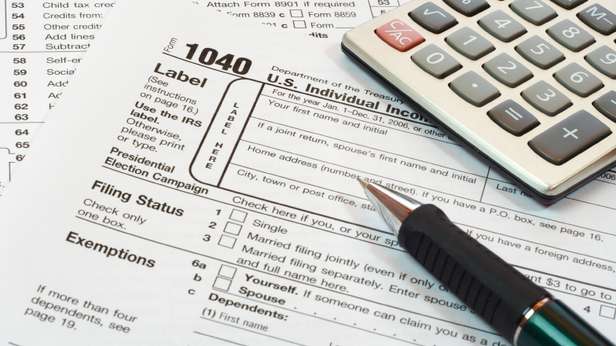
September 8, 2015
by Nick Novak
MacIver Institute Director of Communications
The following column was originally published by the Eau Claire Leader-Telegram in response to a previous editorial in that paper.
Do Wisconsinites pay too much in taxes or should we be paying even more? The likely answer to this question for a vast number of us is that taxes should, of course, be lower.
That wasn’t the tone taken by the editorial in the Aug. 16 Leader-Telegram, however. In a round-about way, it advocated for higher taxes because of a claim that the state is no longer one of the 10 worst states for tax burdens.
According to the Leader-Telegram, Lt. Gov. Rebecca Kleefisch said in a recent interview that she and the Republican leadership are striving to get Wisconsin out of the top 10 highest-taxed states.
But Dale Knapp of the Wisconsin Taxpayers Alliance says the lieutenant governor’s top 10 claim is no longer true. He cites the latest data available from the U.S. Census Bureau that shows Wisconsin is actually the 12th highest-taxed state in the country.
Wisconsin has done a tremendous job of late on tax reform, but there is still a long way to go. Even if Knapp’s data was the be-all and end-all, the state is still in a pretty bad situation. But, according to the data, Wisconsin is actually in much worse shape than Knapp alludes to.
Wisconsin’s top individual income tax rate is the eighth highest in the country at 7.65 percent. On property taxes, the Badger State is fifth highest.
When the Tax Foundation added up how much residents pay in state and local taxes, Wisconsin was fifth highest. The Badger State is also the eighth worst on the Foundation’s Business Tax Climate Index.
Unfortunately, it doesn’t even stop there. A WalletHub survey of state and local taxes shows Wisconsin has the third highest tax burden in the country. So, before Knapp and the Leader-Telegram start celebrating, Wisconsin is still in dire need of tax reform.
The reason this matters is that the tax code is an integral part of the decision-making process for businesses. That is the second part of the editorial, again using Knapp’s analysis to claim tax cuts don’t spur economic growth. The editorial claims individuals take money from tax cuts to save for retirement, instead of spending it.
“Saving for retirement is a good idea, but it doesn’t add jobs as public spending on roads or schools would do,” the editorial reads.
Simply put, the editorial seems to argue that it is better to take money out of the economy to spend it where government sees fit, instead of letting individuals spend or save their hard-earned money as they see fit.
The best way to grow the economy is to get government out of the way and let the market work. If individuals keep more of their own money in their pockets, they will spend it, save it and invest it as they see fit.
If taxes were lower and less complicated, out-of-state businesses would have more incentive to move to Wisconsin and local companies would be more likely to expand here. That creates more jobs, which then leads to more income for the workers of our state.
Even with all the tax cuts and reforms passed in recent years, Kleefisch is right. Wisconsin is still in the top 10 of a bad list — and the top five of some other bad lists.
And that statistic has contributed to billions of dollars leaving the state over the past two decades. Wisconsinites have been moving in droves to states such as Florida, Arizona and Texas, not just because of the weather, but because the tax burden is so much lower in these states.
It is not just southern and western states that benefit from Wisconsin’s high taxes. Many workers in the Dairy State would be better off moving to Minnesota, Michigan or Iowa because of a lower overall tax burden, according to a MacIver Institute study.
Wisconsin has made small improvements in the past five years, but it is not enough.
Tax reform needs to be a continued focal point for the administration and legislators. We should not be on any list for the worst taxes in the country. Instead, leaders in our state need to strive to put Wisconsin in the top 10 for having the best tax climate.